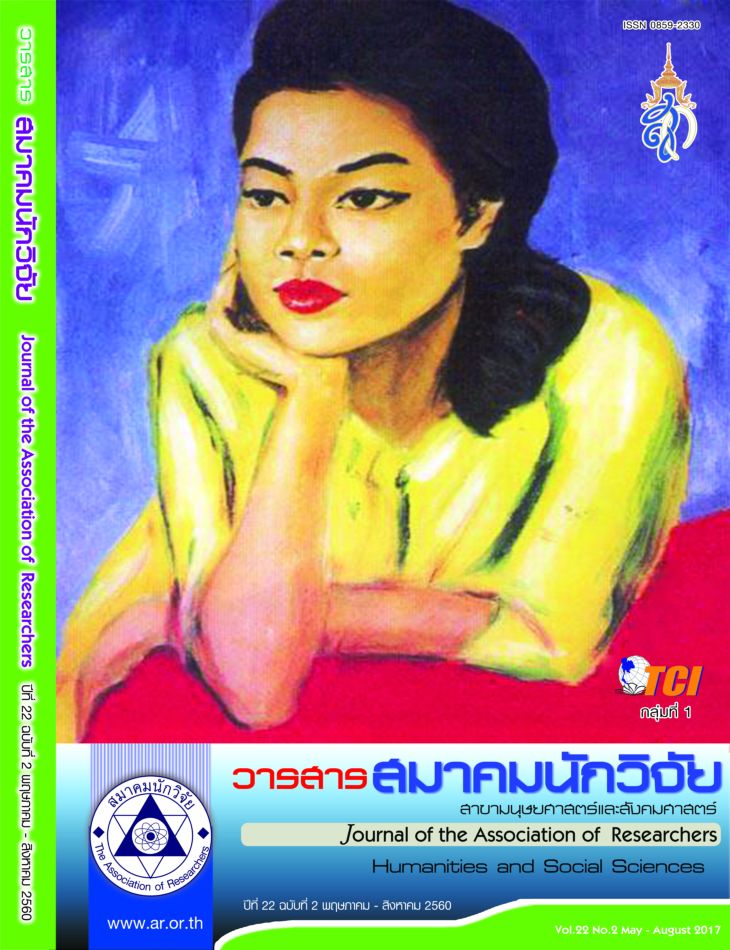Police Cadet Curriculum for Police Profession: Directions in the Next Decade (B.E.2555–2564)
Main Article Content
Abstract
The research aims to study the directions of police cadet curriculum for police profession in the next decade (B.E.2555 – 2564). The research methods are composed of in-depth interviewing experts and five groups of related key informants and giving a seminar on study results for related persons. The
study found that the curriculum philosophy has to contain knowledge in practical skill, morality and ethics. Five groups are composed of 1) six experienced experts who have been teaching and/or developing university education curriculum for at least three years, 2) two experienced experts who have been
teaching and/or working in judicial field for at least three years, 3) seven experienced experts who have been administrating police organization and/or teaching at Royal Police Cadet Academy for at least three years, 4) four experts who are members of Board of Education at Royal Police Cadet Academy
and 5) two key informants who are class 62nd police cadets. After analyzing the data, conducting group seminars and related persons discussing on the data,
The study found out that the curriculum’s important components must be composed of university level basic courses, police courses, practical police profession courses and also promoting ethics and morality at the same time. Besides, learning and teaching process should aim at integrated theory and
practice as well. The curriculum objectives must cover knowledge in academics, profession skills, morality and ethics of being a decent police officer. The curriculum must include fundamental subjects, police academics and subjects focusing on police profession practical skills, learning experience and teaching
and learning activities that provide skillful internships. The evaluation has to be done in various measurements. Future trend in learning and teaching curriculum should be mainly composed of various cultures, environment, modern communication skills, economic crime, cyber crime, transnational
crime, cyber security, alien workers, human trafficking, transnational natural resources and environmental crime, etc. Accordingly, the above statement are fundamental principles leading to the concept of creating professional police with being decent, knowledgeable, skillful, ideological, and ethical who will
always stand by Thai people.
Article Details
บทความที่ปรากฏในวารสารนี้ เป็นความรับผิดชอบของผู้เขียน ซึ่งสมาคมนักวิจัยไม่จำเป็นต้องเห็นด้วยเสมอไป การนำเสนอผลงานวิจัยและบทความในวารสารนี้ไปเผยแพร่สามารถกระทำได้ โดยระบุแหล่งอ้างอิงจาก "วารสารสมาคมนักวิจัย"
References
มีชัย สีเจริญ พันตำรวจโท และคณะ. 2553. รายงานการวิจัยฉบับสมบูรณ์ โครงการ แนวทางการพัฒนาสู่ความเป็นตำรวจมืออาชีพ. สนับสนุนทุนวิจัยโดย สำนักงานกองทุนสนับสนุนการวิจัย(สกว.)
ปุระชัย เปี่ยมสมบูรณ์. 2536. ความรับผิดชอบเชิงวิชาชีพในงานตำรวจ. เอกสารเสนอต่อคณะกรรมการส่งเสริมงานวิจัยสถาบันบัณฑิตพัฒนบริหารศาสตร์ ;ลำดับที่ 1865 สำนักวิจัย กรุงเทพฯ
References
Aimorn, Jangsiripornpakorn. (2550). Evaluation of Learning: Assessment of learning new concepts (2ndedition). Bangkok: textbooks academic papers Center The Faculty of Education ChulalongkornUniversity
Bourner, T., Katz, T. and Watson, D. (2000). New Directions in Professional Higher Education. Philadelphia :SRHE and Open University Press.
Chakrit, Chukong. (2001). Learning and teaching preparation of police cadet academy as perceived by police cadets. (Master’s Thesis) Burapha University, Master Education Educational Adminstration.
Development Commission Police. (2007). The initial proposal to develop a system for the police. Nonthaburi:Development Commission Police Ministry of Justice.
Green, T. and Linsdell, G. (2010). Higher Education in Policing. Dealing with uncertainties in policing serious crime. [Online]. Available from: http://epress.anu.edu.au. [2010, September 3]
Hall, R. H. (1968). “Professionalization and bureaucratization”. American sociological review, 92-104.
Jumnaem Chuangdtragoon. (2005). Ideas about the role and direction of development of human Resources.Thailand. Human Resource. 2(2). 5-10.
Kunjara Na Ayudhya, Chomphan. (1997). Curriculum development. Bangkok: Air Force News Publishing.(In Thai).
Madaus, G. F., Scriven, M. S., & Stufflebeam, D. L. (1983). Evaluation model viewpoints on educational
Marston, D. (1988). “The effectiveness of special education a time series analysis of reading performance in regular and special education settings”. The Journal of Special Education, 21(4), 13-26.
Moore, W., E. (1970). The Professions: Roles and Rules. New York: Russell Sage Foundation.National Economic and Social Development Plan 11th 2012-2016 (2012, 1 October) n.p. Office of the National Economic and Social Development. Office of The Prime Minister.National Education Act of 1999, as amended (No. 2 & No.3). Retrieved August 10, 2016, from https://www.mwit.ac.th/~person/01-Statutes/NationalEducation.pdf
Natsakon, Adjanasuppat. (2003). Relevance of Royal Thai Police Cadet Academy Curriculum to Current Crime Prevention Activities: A case Study of The Police Cadets, Class 52. (master’s Thesis). Mahidol University. Master of Arts Criminology and Criminal Justice.


